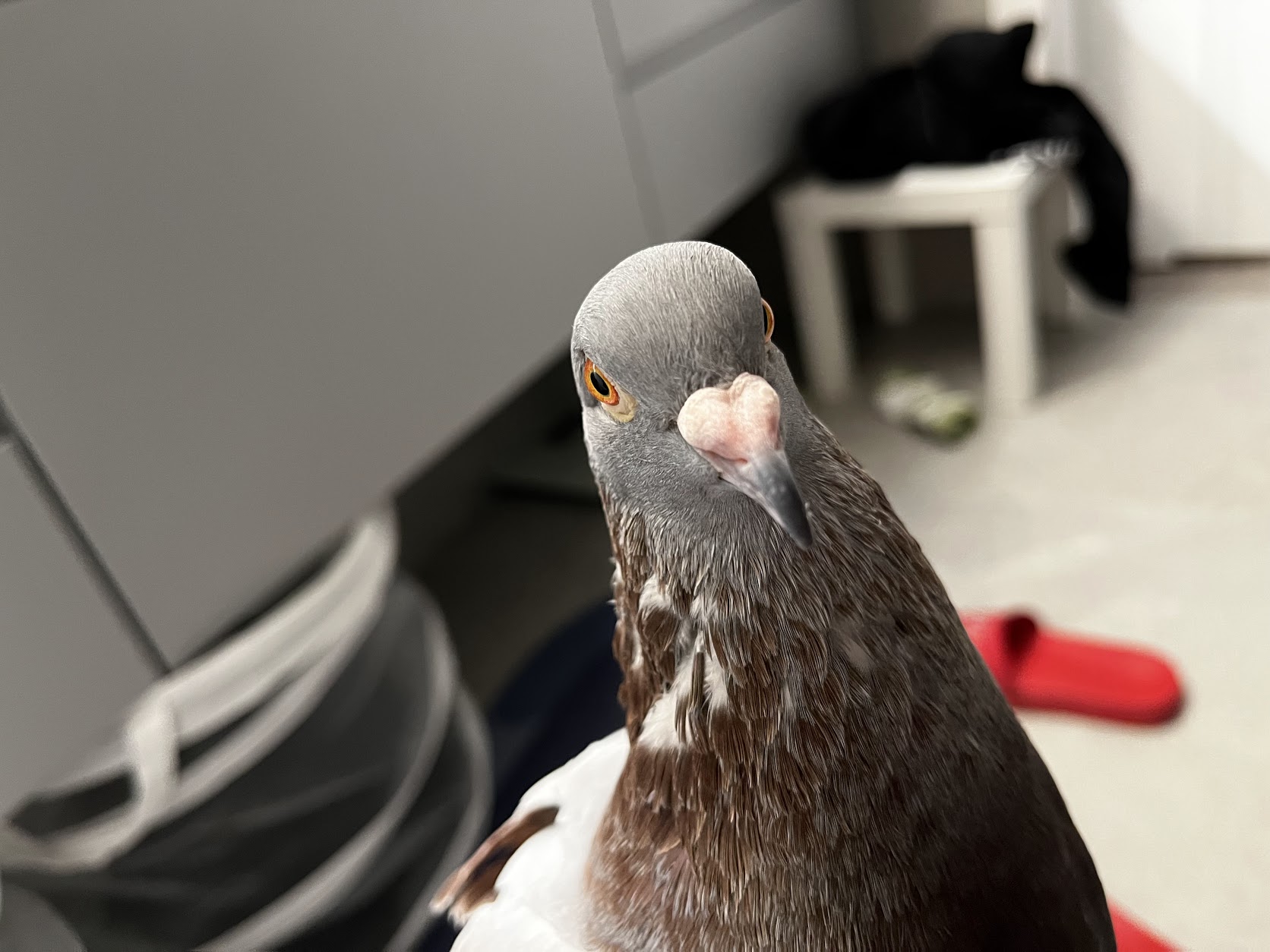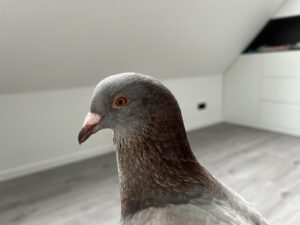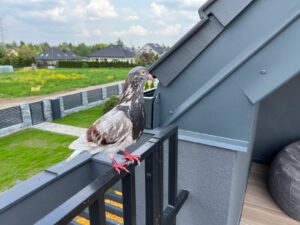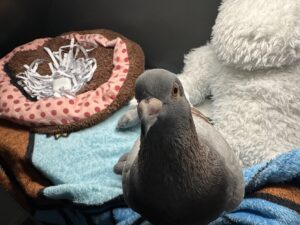Do pigeons mate for life? This is a very interesting question.
I am a proud owner of a pet pigeon, and I have always been fascinated by these birds. I have spent a lot of time researching and observing my own pigeon, as well as others in my community, and I have come to realize that the popular belief that pigeons mate for life may not be entirely accurate.
Pigeons, also known as rock doves, are a common sight in urban areas all over the world. They are members of the family Columbidae, which also includes doves and mourning doves (check the article about the dove vs pigeon). Pigeons are known for their strong homing instincts and ability to navigate long distances and have been used for centuries for racing and message delivery.
While pigeons have a reputation for being monogamous, recent research suggests otherwise. In fact, scientists have found that pigeons exhibit a range of mating behaviors, from monogamy to promiscuity.
In this article, I will explore the various factors that influence pigeon mating patterns, and dispel some of the myths surrounding pigeon relationships.
So, if you are like me, an enthusiast of these lovely birds, or just curious about their behavior, keep reading!
JUMP TO:
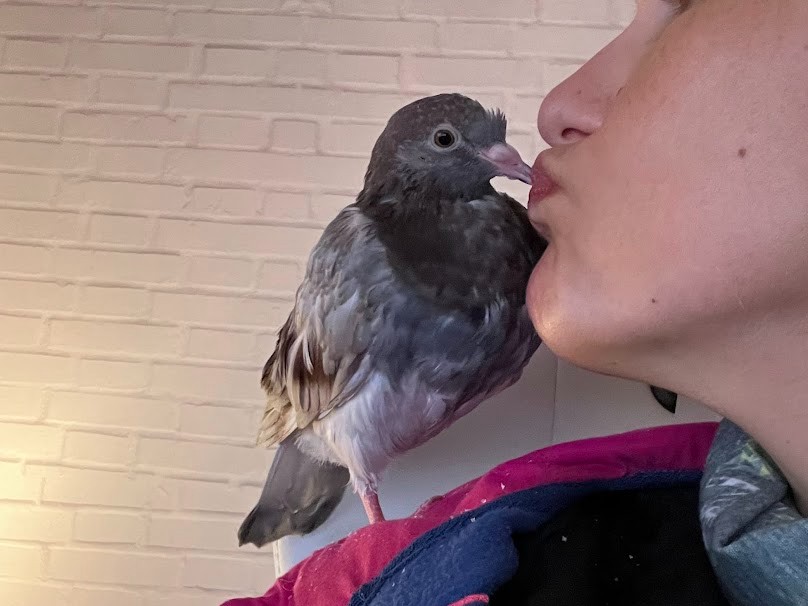
The myth of pigeons mating for life
Do pigeons mate for life? Or is it just a myth?
The popular belief that pigeons mate for life
Many people believe that pigeons mate for life, and this idea is widely accepted as fact. However, this belief is not entirely accurate. While pigeons can form strong pair bonds, they are not necessarily monogamous for the entirety of their lives. In fact, studies have shown that pigeons are more likely to engage in extra-pair copulations and divorce than previously thought.
Folklore and cultural references to pigeon monogamy
The idea that pigeons mate for life is not just a modern misconception, but has been present in folklore and culture for centuries. In many cultures, pigeons are seen as symbols of love and fidelity, and their supposed monogamy is often used as a metaphor for human relationships. But, this belief is not backed by scientific evidence and it’s important to understand the real behavior of these birds.
Pigeons are fascinating birds and their behavior is complex and varied, it’s a common misconception that they mate for life and it’s important to understand their real behavior, as well as their role in urban environments and the impact of human interaction on their mating habits.
Check these articles with facts & myths about pigeons:
Scientific evidence on pigeon mating habits
Do pigeons mate for life according to science?
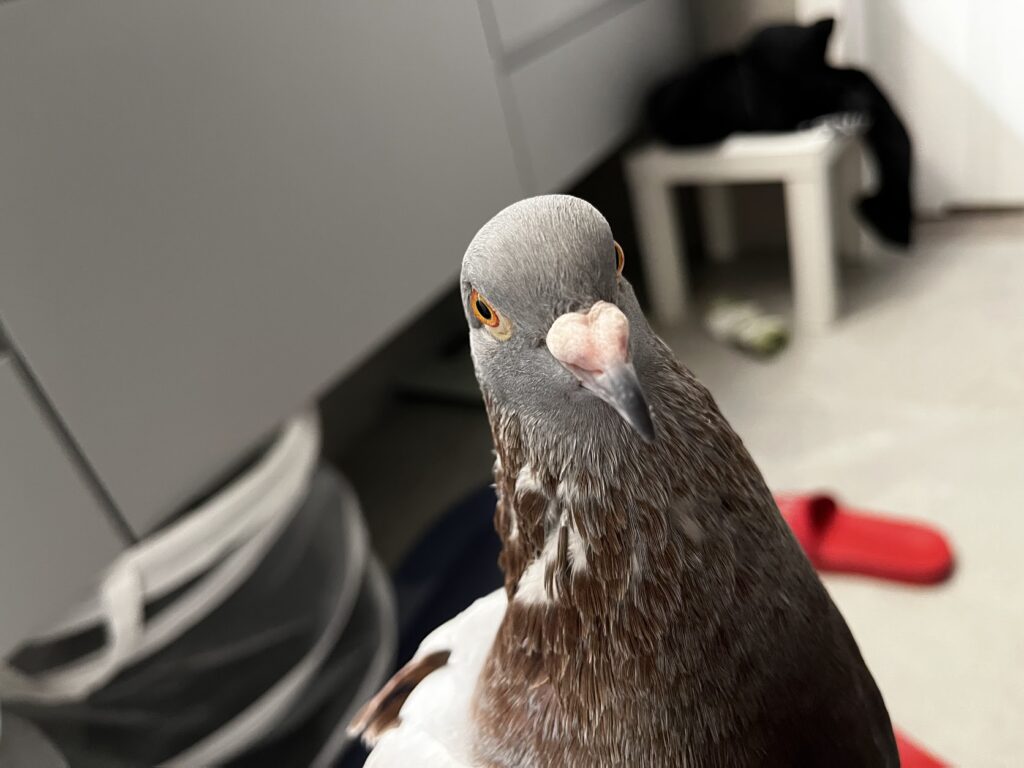
Studies on pigeon mating behavior
In recent years, scientists have conducted numerous studies on pigeon mating behavior in order to better understand these birds. These studies have looked at a variety of behaviors, including courtship, pair bonding, and extra-pair copulations. One study found that pigeons engage in a variety of courtship behaviors, including preening, displaying, and feeding each other. Another study found that pigeons form strong pair bonds, but also engage in extra-pair copulations.
Findings on pigeon pair bonding and “divorce” rates
Studies have shown that while pigeons can form strong pair bonds, these bonds are not necessarily permanent. In fact, “divorce” rates among pigeons have been found to be relatively high, with some studies reporting rates as high as 30%.
This suggests that pigeons are not exclusively monogamous and that they are capable of forming new pair bonds if their current relationship dissolves.
Factors that influence pigeon mating patterns
Several factors have been found to influence pigeon mating patterns, including age, genetics, and environmental conditions.
- For example, young pigeons have been found to be more likely to engage in extra-pair copulations than older birds.
- Similarly, pigeons with certain genetic traits have been found to be more likely to engage in extra-pair copulations than others.
- Additionally, environmental factors such as food availability and population density have been found to influence pigeon mating patterns, and it is also found that human interaction can affect the mating patterns of pigeons in captivity.
- It’s important to keep in mind that the behavior of pigeons is complex and varied, and the factors that influence their mating patterns are not fully understood.
- However, ongoing research is helping to shed light on the intricacies of pigeon relationships and behavior.
Do pigeons mate with people?
Do pigeons mate for life with people? This is very interesting.
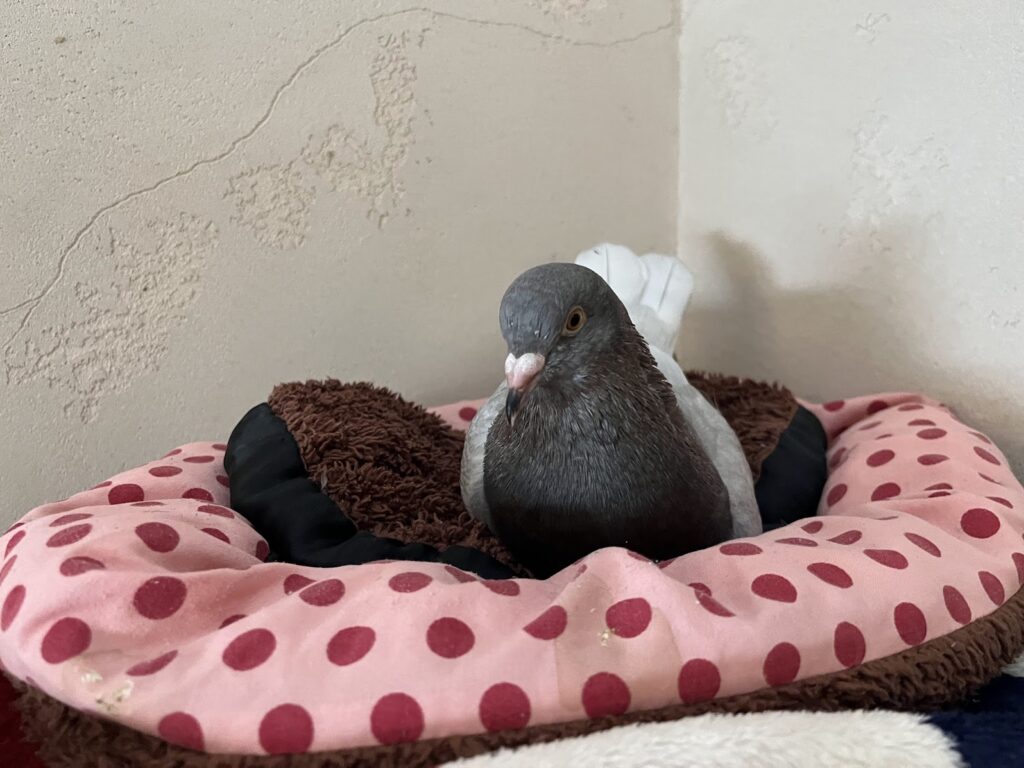
The trend of keeping pigeons as pets
In recent years, there has been a growing trend of keeping pigeons as pets. This is likely due in part to their reputation as gentle, intelligent birds that can be easily trained to perform a variety of tricks. However, many people who keep pigeons as pets may not be aware of their true mating behavior and the responsibilities that come with owning a pet pigeon.
The behavior of pigeons kept in captivity
Pigeons kept in captivity may exhibit different mating behavior than wild pigeons. For example, captive pigeons may be more likely to form pair bonds, as they are typically kept in smaller groups and are not exposed to the same range of potential partners as wild pigeons. Additionally, captive pigeons may be more likely to breed year-round, as they are not subject to the same seasonal fluctuations in food availability and other environmental factors that influence breeding in wild pigeons.
The impact of human interaction on pigeon mating habits
The impact of human interaction on pigeon mating habits is not well understood. However, it’s likely that human activities, such as keeping pigeons in captivity, feeding them, and altering their environment, can influence their mating behavior.
For example, feeding pigeons may increase their breeding potential, while keeping pigeons in captivity may decrease their ability to form new pair bonds. It’s important for people who keep pigeons as pets to understand the impact of their actions on the birds’ behavior and to provide suitable environment for them to thrive.
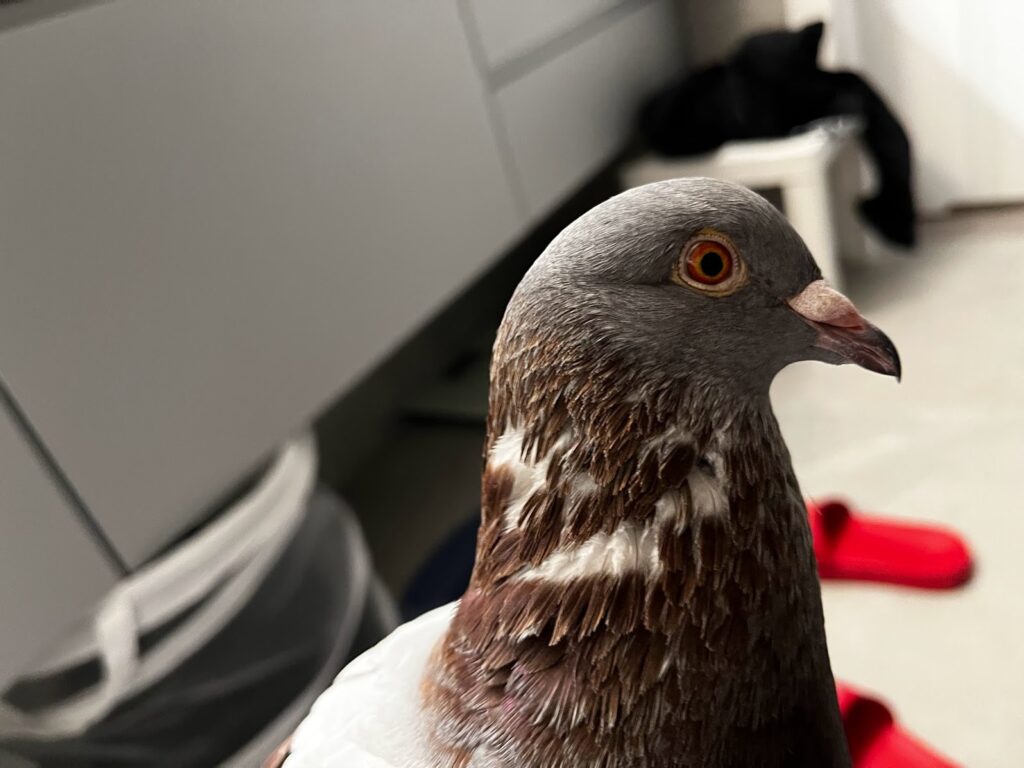
Final thoughts
In conclusion, the myth of pigeon monogamy is not entirely accurate and it’s important to understand the real behavior of these birds.
Pigeons are fascinating creatures and their behavior is complex and varied. It’s important to keep in mind that the impact of human interaction on pigeon mating habits is not well understood, and further research is needed to fully understand the relationship between pigeons and humans.
As a pet pigeon owner, I believe that by understanding their behavior we can provide better care for them and appreciate their beauty and intelligence more.
Frequently asked questions about pigeons mating for life
Do pigeons mate for life?
Pigeons can form strong pair bonds, but they are not necessarily monogamous for the entirety of their lives. Studies have shown that pigeons engage in extra-pair copulations and divorce rates among pigeons have been found to be relatively high.
How long do pigeon pair bonds last?
The duration of pigeon pair bonds can vary, with some lasting for several years, while others may only last for a single breeding season. Factors that can influence the duration of a pair bond include age, genetics, and environmental conditions.
What are the courtship behaviors of pigeons?
Pigeons engage in a variety of courtship behaviors, including preening, displaying, and feeding each other. Males may also perform aerial displays to attract a mate.
Can captive pigeons mate for life?
Captive pigeons may be more likely to form pair bonds than wild pigeons, but the duration of these bonds can still vary. Additionally, captive pigeons may be more likely to breed year-round, as they are not subject to the same seasonal fluctuations in food availability and other environmental factors that influence breeding in wild pigeons.
How does human interaction affect pigeon mating patterns?
The impact of human interaction on pigeon mating patterns is not well understood. However, it’s likely that human activities, such as keeping pigeons in captivity, feeding them, and altering their environment, can influence their mating behavior. It’s important for people who keep pigeons as pets to understand the impact of their actions on the birds’ behavior and to provide a suitable environment for them to thrive.
Check other articles about pigeons:
- How To Pet A Pigeon
- Names For Pigeons (260+)
- How To Tell If A Pigeon Is Male Or Female?
- Are Pigeons Good Pets?
- How Long Do Pigeons Live?

